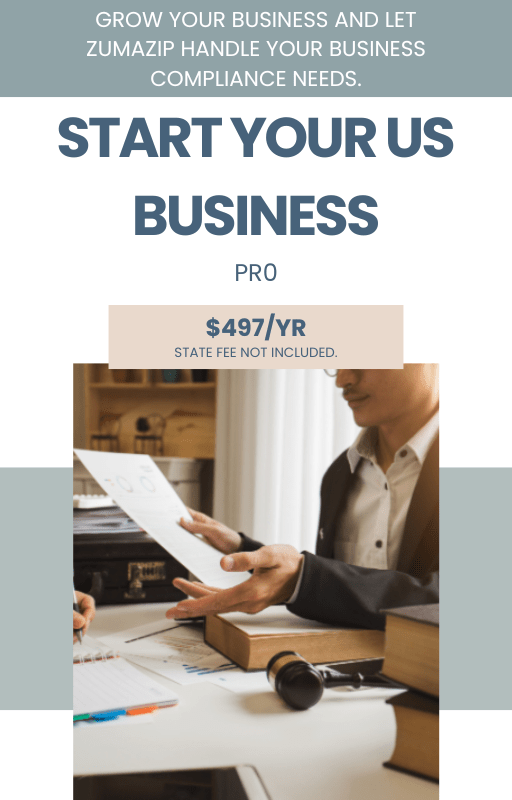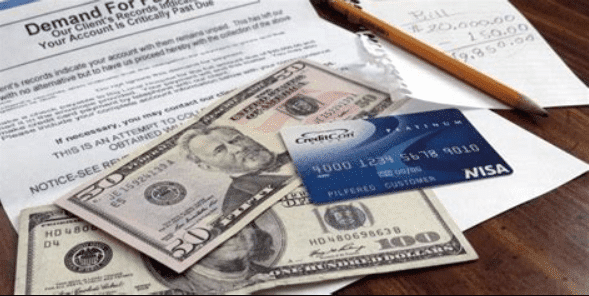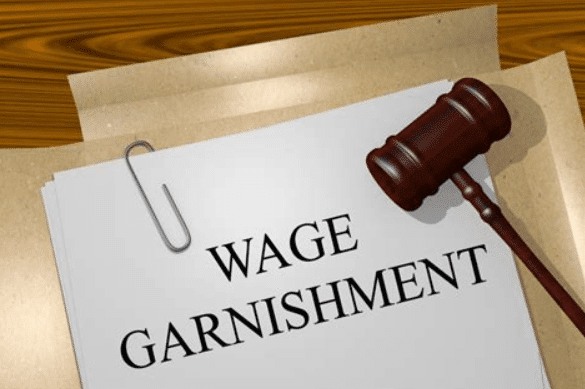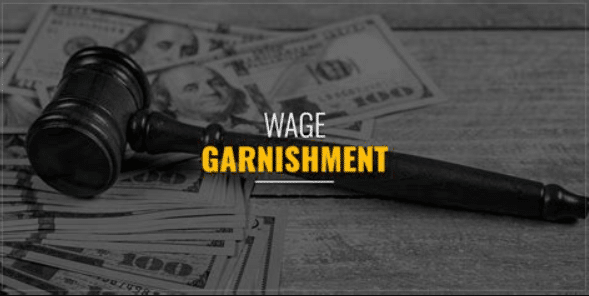Even if your wages are being garnished, there is still hope. If you get sued for a debt use ZumaZip.com to respond in 15 minutes and prevent wage garnishment.
Did you recently receive a notice that a portion of your earnings is about to be garnished? If so, you’re likely experiencing a mix of emotions. The intrusion into your hard-earned income can feel overwhelming and disempowering. But fear not, there are steps you can take to protect your wallet and regain control of your financial situation.
Understanding Wage Garnishment
Wage garnishment typically occurs due to unpaid debts or outstanding financial obligations, including delinquent child support payments. When a creditor obtains a court order, they can legally seize a portion of your wages until the debt is resolved. This can amount to a significant portion of your income, impacting your financial stability and future plans.
Taking Action to Stop Garnishment
Fortunately, there are proactive measures you can take to prevent or halt wage garnishment:
- File Your Answer: Upon receiving a Writ of Garnishment, it’s crucial to respond promptly. Failing to do so could result in a default judgment against you. By filing an Answer, you contest the allegations made by the plaintiff and assert your rights. Platforms like ZumaZip.com can simplify this process, enabling you to generate and file your response efficiently.
- File a Claim of Exemption: You may be eligible for exemption from wage garnishment under certain circumstances. This could include sources of income such as Social Security benefits, veterans’ benefits, or disability payments. Filing a Claim of Exemption asserts your right to protect these funds from garnishment, providing a legal basis for halting the process.
- Negotiate a Settlement: In some cases, resolving the underlying debt may be an option to stop garnishment. This could involve negotiating a settlement with the creditor, potentially reducing the total amount owed or establishing a structured repayment plan. It’s essential to ensure any agreements reached are documented and legally binding to prevent future garnishment actions.
- Consider Bankruptcy: While filing for bankruptcy is a significant decision, it can offer relief from wage garnishment and other debt-related challenges. Consulting with a bankruptcy professional or debt collection attorney can help you understand your options and determine the best course of action for your situation.
Empowering Yourself with ZumaZip.com
ZumaZip.com offers a user-friendly platform designed to empower individuals facing wage garnishment. By providing access to essential resources and guidance, ZumaZip.com enables you to take control of your financial situation and protect your hard-earned income. Whether you need assistance filing a response, exploring exemption options, or negotiating with creditors, ZumaZip.com is here to help.
Take Charge of Your Financial Future
Wage garnishment can be a daunting prospect, but it’s not insurmountable. By taking proactive steps and leveraging the resources available through ZumaZip.com, you can stop garnishment in its tracks and reclaim control of your finances. Don’t let debt dictate your future – empower yourself with the knowledge and tools to protect your wallet and build a brighter financial future.
File a Claim of Exemption to Stop Wage Garnishment
One of the most significant steps you can take to stop wage garnishment is to file a Claim of Exemption, or in some cases, this may be a Motion for Exemption. This step is crucial, so you must do so almost immediately. Wage garnishment happens nearly as quickly as you can say the words out loud. Filing the Exemption form is one of the first steps you want to take because you will often only have between 5-10 days to do so in many states. Some courts will set a hearing date when they receive your exemption form, and others will ask you if you would like to request a hearing. In either circumstance, the hearing may be an excellent opportunity for you to plead your case so ensure that you can appear that day.
Like Florida, some states make it easy for you to file a Claim of Exemption or Motion for Exemption. For example, some courts provide you with a form called a Claim of Exemption and Request for Hearing. All you would need to do is complete the form by selecting the relevant reasons why the court shouldn’t allow the creditor to garnish your wages. Filing a Claim of Exemption is a great way to stop Garnishment before it happens and enable you to get your voice heard. Here are a few common exemptions that you may fall under:
- Social Security Benefits
- Supplemental Security Benefits
- Public Assistance
- Worker’s Compensation
- Unemployment Compensation
- Veterans’ Benefits
- Disability Income
- Child Support
- Payments under retirement, pension, and annuity plans
- Alimony, support, or separate maintenance
Not sure if you received one of these forms? People often miss essential pages like this after going through the initial shock of finding out their wages will be garnished. Now that you are thinking clearly, read through each page of the documents you received and see if the court provided you with a Claim of Exemption. If you did not receive a Claim of Exemption form, you might be able to request this form from the Clerk of Court, it may be an easily accessible form on your court’s website, or in some cases, you may receive the form from your bank or employer. You can stop the Garnishment by responding and letting the court know that your wages qualify to be exempt from Garnishment.
Pay Off the Debt to Settle the Lawsuit
This option is not always likely or feasible after you’ve received a Writ of Garnishment. If your creditor has reached out to you and made debt settlement proposals already, they may not be willing to settle. However, if your creditor is willing to work with you, you can stop a wage garnishment by paying the debt off. If you plan on doing this step, it is still essential that you follow through with the steps listed above while working on this process. If the creditor is willing to work with you, they may allow you to resolve the debt by paying a fraction of the initial debt owed. Another common option is they may allow you to make consistent monthly payments until you pay off the debt entirely. Whatever you arrange, make sure it is in writing, and you do everything to ensure that the Garnishment will cease as a result.
Not Our Favorite Option, but it Might be the Option for You – Filing for Bankruptcy.
Another way you can stop a wage garnishment from happening is by filing for Bankruptcy. It is vital that you speak with a Bankruptcy professional if you decide to go this route as Chapter 7 and Chapter 13 bankruptcies may or may not apply to the type of debt you have or may work a bit differently. If you are considering going this route due to a large amount of debt, consider speaking with a debt collection attorney first to see if they can help you. Here at ZumaZip.com, we partner with debt collection attorneys so that you have the option to have your Answer reviewed by a professional to give you added peace of mind.
Wage Garnishment can leave you feeling powerless, but we hope these tips help you fight back and keep more money in your wallet for your personal goals.
What is ZumaZip?
ZumaZip is a convenient solution designed to streamline your response to a debt collection lawsuit. Here’s a breakdown of what you can expect when you use ZumaZip:
Firstly, you’ll access our user-friendly web application, which guides you through the process step by step. You’ll be prompted to answer a series of questions related to your specific situation. Once you’ve completed the questionnaire, you have the option to either print out the finalized forms and mail them to the appropriate courts yourself, or you can opt to utilize ZumaZip’s services to file them on your behalf. Additionally, if you choose this option, an attorney will review your document for added peace of mind.
If you’re seeking guidance on how to effectively respond to a debt collection lawsuit, ZumaZip can provide the assistance you need. Feel free to explore our FAQs for more information on what ZumaZip has to offer.
What if I haven’t been sued yet?
If you’ve only received a collections notice, but not a lawsuit, the best way to respond is with a Debt Validation Letter. When a debt collector contacts you in any way, whether it’s by phone or mail, you can respond by formally requesting a debt validation with a Debt Validation Letter . This letter notifies the collector that you dispute the debt and forces them to provide proof you owe the debt. They can’t call you or continue collecting until they provide validation of the debt. This flowchart shows how you can use a Debt Validation Letter to win.
Get started with a Debt Validation Letter here.
How to Answer a Summons for debt collection in all 50 states
Here’s a list of guides on how to respond to a debt collection lawsuit in each state:
- Alabama
- Alaska
- Arizona
- Arkansas
- California
- Colorado
- Connecticut
- Delaware
- Florida
- Georgia
- Hawaii
- Idaho
- Illinois
- Indiana
- Iowa
- Kansas
- Kentucky
- Louisiana
- Maine
- Maryland
- Massachusetts
- Michigan
- Minnesota
- Mississippi
- Missouri
- Montana
- Nebraska
- Nevada
- New Hampshire
- New Jersey
- New Mexico
- New York
- North Carolina
- North Dakota
- Ohio
- Oklahoma
- Oregon
- Pennsylvania
- Rhode Island
- South Carolina
- South Dakota
- Tennessee
- Texas
- Utah
- Vermont; Vermont (Small Claims court)
- Virginia
- Washington
- West Virginia
- Wisconsin
- Wyoming
Guides on how to beat every debt collector
Hey there! Facing off against a debt collector can feel like a daunting challenge, but fear not! We’re here to help you navigate through it all with our handy guides designed to assist you in beating every debt collector you encounter. Whether you’re facing a new lawsuit or dealing with a persistent collector, we’ve got your back. Stay positive, stay informed, and let’s tackle this together!
- Absolute Resolutions Investments LLC
- Accredited Collection Services
- Alliance One
- Amcol Clmbia
- American Recovery Service
- Asset Acceptance LLC
- Asset Recovery Solutions
- Associated Credit Services
- Autovest LLC
- Cach LLC
- Cavalry SPV I LLC
- Cerastes LLC
- Colinfobur
- Covington Credit
- Crown Asset Management
- CTC Debt Collector
- Cypress Financial Recoveries
- Delanor Kemper & Associates
- Eagle Loan of Ohio
- Educap
- Estate Information Services
- FIA Card Services
- Forster & Garbus
- Freshview Solutions
- Fulton Friedman & Gullace LLP
- Harvest Credit Management
- Howard Lee Schiff
- Hudson & Keyse LLC
- Integras Capital Recovery LLC
- Javitch Block
- Jefferson Capital Systems LLC
- LVNV Funding
- Mannbracken
- Mariner Finance
- Medicredit
- Michael J Adams PC
- Michael J Scott
- Midland Funding LLC
- Mullooly, Jeffrey, Rooney & Flynn
- Mountain Land Collections
- MRS Associates
- National Collegiate Trust
- Nationstar Foreclosure
- Northstar Capital Acquisition
- NCEP LLC
- NRC Collection Agency
- OneMain Financial
- Palisades Collection LLC
- Pallida LLC
- Paragon Revenue Group
- Pinnacle Collections Agency
- PMAB LLC
- Portfolio Recovery Associates
- Provest Law
- PYOD LLC
- Reunion Student Loan Finance Corporation
- Revenue Group
- Regents and Associates
- RSIEH
- Salander Enterprises LLC
- Second Round Sub LLC
- Security Credit Services
- Sherman Financial Group
- Suttell and Hammer
- T-Mobile
- Transworld Systems
- Tulsa Teachers Credit Union
- UCB Collection
- Velo Law Office
- Velocity Investments
- Waypoint Resource Group
- Weinberg and Associates
- Wolpoff & Abramson
Settle your medical debt
Having a health challenge is stressful, but dealing medical debt on top of it is overwhelming. Here are some resources on how to manage medical debt.
- Am I Responsible for My Spouse’s Medical Debt?
- Do I Need a Lawyer for Medical Bills?
- Do I Need a Lawyer to Fight Medical Bill Debt?
- Does Bankruptcy Clear Medical Debt?
- How Much Do Collection Agencies Pay for Medical Debt?
- How to Find Medical Debt Forgiveness Programs
- Is There a Statute of Limitations on Medical Bills?
- Medical Debt Statute of Limitations by State
- Summoned to Court for Medical Bills — What Do I Do?
- Summoned to Court for Medical Bills? What to Do Next
Stop calls from Debt Collectors
Do you keep getting calls from an unknown number, only to realize that it’s a debt collector on the other line? If you’ve been called by any of the following numbers, chances are you have collectors coming after you, and we’ll tell you how to stop them.
- 800-390-7584
- 800-289-8004
- 800-955-6600
- 877-366-0169
- 877-591-0747
- 800-278-2420
- 800-604-0064
- 800-846-6406
- 877-317-0948
- 888-899-4332
- 888-912-7925
- 202-367-9070
- 502-267-7522
Other wage garnishment resources
- Bank Account Garnishment and Liens in Texas
- Can I Stop Wage Garnishment?
- Can My Wife’s Bank Account Be Garnished for My Debt?
- Can Payday Loans Garnish Your Wages?
- Can pensions be garnished?
- Can Private Disability Payments Be Garnished?
- Can Social Security Disability Be Garnished?
- Can They Garnish Your Wages for Credit Card Debt?
- Can You Stop a Garnishment Once It Starts?
- Guide to Garnishment Limits by State
- How Can I Stop Wage Garnishments Immediately?
- How Long Before a Creditor Can Garnish Wages?
- How Long Does It Take to Get Garnished Wages Back?
- How to Fight a Wage Garnishment
- How to Prevent Wage Garnishment
- How to Stop a Garnishment
- How to Stop Social Security Wage Garnishment
- How to Stop Wage Garnishment — Everything You Need to Know
- New York Garnishment Laws – Overview
- Ohio Garnishment Laws — What They Say
- Wage Garnishment Lawyer
- What Is Wage Garnishment?

































